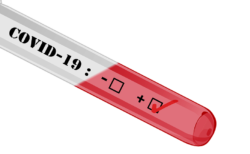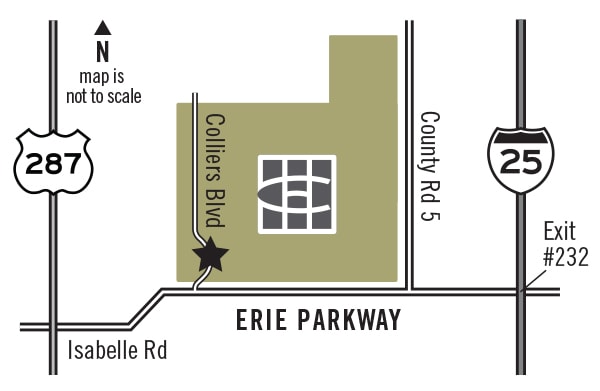Scams to Steal Your Stimulus Checks
Almost since the day coronavirus became a household world, con artists and cyber scammers have been conspiring to separate you from your money. As early as March 12, Border Patrol officials discovered fake coronavirus test kits at the LA airport, shipped from the UK. About the same time people impersonating Medicare employees started contacting at-risk individuals to illegally elicit confidential information.
Fake Test Kits and Email Phishing
 The Department of Justice urges everyone to be aware that criminals are attempting to exploit COVID-19 through a variety of scams. From individuals and businesses selling fake cures online, to phishing emails posing as the World Health Organization or the Centers for Disease Control and Prevention. These shameless thieves are out to get your personal information and will use face-to-face deception, phone calls and email phishing scams.
The Department of Justice urges everyone to be aware that criminals are attempting to exploit COVID-19 through a variety of scams. From individuals and businesses selling fake cures online, to phishing emails posing as the World Health Organization or the Centers for Disease Control and Prevention. These shameless thieves are out to get your personal information and will use face-to-face deception, phone calls and email phishing scams.
 Some are offering to distribute tests for COVID-19, others offer packages of hand sanitizer, masks and other protective equipment. The ploy is to get victims to reveal their names and addresses, social security numbers and Medicare information. With it, these scammers can perpetrate all kinds of financial and Medicare fraud.
Some are offering to distribute tests for COVID-19, others offer packages of hand sanitizer, masks and other protective equipment. The ploy is to get victims to reveal their names and addresses, social security numbers and Medicare information. With it, these scammers can perpetrate all kinds of financial and Medicare fraud.
NBC News warns that any test kit that shows up online should be avoided at all costs. Despite what anyone claims, there are no FDA-approved at-homeCOVID-19 test available for sale. The same goes for antibody tests and supposed cures. There simply are none.
Work from Home Scams
 With 22 million people out of work and applying for unemployment, now there are scammers reaching out with job offers promising big bucks for at-home work. If you respond, they may request a small amount of money for training or special equipment, and banking information so they can direct deposit funds to your checking or savings account. In reality they will steal whatever you give them and whatever they can siphon from your accounts.
With 22 million people out of work and applying for unemployment, now there are scammers reaching out with job offers promising big bucks for at-home work. If you respond, they may request a small amount of money for training or special equipment, and banking information so they can direct deposit funds to your checking or savings account. In reality they will steal whatever you give them and whatever they can siphon from your accounts.
There are legitimate work from home opportunities, to be sure. But before you accept, do your research and contact the company in question, especially if the person making the job offer asks for sensitive information.
 Fraudsters are using robocalls, social media, and websites to defraud people, as well. Malicious websites and apps will appear to have virus-related information but by accessing the links, criminals can gain and lock you out of your digital devices until a payment is made. CNET reports on one recent scam called Covidlock that claimed to help users chart the spread of the virus. Instead, it led to a slew of Android phones being locked and held for ransom.
Fraudsters are using robocalls, social media, and websites to defraud people, as well. Malicious websites and apps will appear to have virus-related information but by accessing the links, criminals can gain and lock you out of your digital devices until a payment is made. CNET reports on one recent scam called Covidlock that claimed to help users chart the spread of the virus. Instead, it led to a slew of Android phones being locked and held for ransom.
 Researchers at Check Point found 15 malicious apps posing as legitimate coronavirus-related apps in a bid to steal users’ data. Among them, a notorious banking trojan known as Cerberus, which can log all of your keystrokes and let someone take over your phone, tablet or computer remotely. Among the warnings from CNET, beware of website name registrations using a coronavirus-related moniker. Those were 50 percent more likely to be from malicious predators.
Researchers at Check Point found 15 malicious apps posing as legitimate coronavirus-related apps in a bid to steal users’ data. Among them, a notorious banking trojan known as Cerberus, which can log all of your keystrokes and let someone take over your phone, tablet or computer remotely. Among the warnings from CNET, beware of website name registrations using a coronavirus-related moniker. Those were 50 percent more likely to be from malicious predators.
Non-Profit and Charity Scams
 Tough times tend to make compassionate people more generous and a lot of individuals and companies are donating to charities to help those most adversely affected by the pandemic fallout. Con artists know this and are out there soliciting donations for illegitimate or nonexistent charities. If you’re inclined to donate to what seems like a worthy cause, the Federal Trade Commission urges you to investigate and confirm the legitimacy of a charity. You can search the company using the IRS Tax-Exempt Organization search tool. And if the company’s legit, you can always donate on the company’s verified website, not to some random caller over the phone.
Tough times tend to make compassionate people more generous and a lot of individuals and companies are donating to charities to help those most adversely affected by the pandemic fallout. Con artists know this and are out there soliciting donations for illegitimate or nonexistent charities. If you’re inclined to donate to what seems like a worthy cause, the Federal Trade Commission urges you to investigate and confirm the legitimacy of a charity. You can search the company using the IRS Tax-Exempt Organization search tool. And if the company’s legit, you can always donate on the company’s verified website, not to some random caller over the phone.
 Not that all scams aren’t objectionable, but here’s one that exploits tender emotions. Animal rescue organizations and shelters are finding they have more people wanting to foster pets than they have pets available. Across the country animal shelters are seeing about a 90 percent increase in foster requests as Americans want to welcome new animals into their homes for much-needed companionship while they self-isolate amid the COVID-19 pandemic. People are at home, working remotely and they’re lonely. In addition to fostering, a look at Craig’s List and other sites shows that there are more posts from people ISO dogs and cats to purchase — a LOT more. The AKC reports there have always been shysters offering non-existent puppies for sale, and suggests that to avoid the latest puppy scams, aspiring pet owners can follow a few simple precautions.
Not that all scams aren’t objectionable, but here’s one that exploits tender emotions. Animal rescue organizations and shelters are finding they have more people wanting to foster pets than they have pets available. Across the country animal shelters are seeing about a 90 percent increase in foster requests as Americans want to welcome new animals into their homes for much-needed companionship while they self-isolate amid the COVID-19 pandemic. People are at home, working remotely and they’re lonely. In addition to fostering, a look at Craig’s List and other sites shows that there are more posts from people ISO dogs and cats to purchase — a LOT more. The AKC reports there have always been shysters offering non-existent puppies for sale, and suggests that to avoid the latest puppy scams, aspiring pet owners can follow a few simple precautions.
Stimulus Check Scams
 The DOJ and IRS both report that scammers are leveraging anxiety about COVID-19 to steal your stimulus checks and personal information. Fortune reports that scammers are now calling homes with the caller ID showing a consumer’s own bank. The “customer service rep” announces your stimulus fund check has arrived and the caller needs to confirm a few bits of information before depositing it. You oblige, it’s your bank after all on the readout, so you recite account numbers, social security details and the digits they need to rob you. Watch out, too, for con artists posing as government agencies, promising to speed up your “economic impact payment.”
The DOJ and IRS both report that scammers are leveraging anxiety about COVID-19 to steal your stimulus checks and personal information. Fortune reports that scammers are now calling homes with the caller ID showing a consumer’s own bank. The “customer service rep” announces your stimulus fund check has arrived and the caller needs to confirm a few bits of information before depositing it. You oblige, it’s your bank after all on the readout, so you recite account numbers, social security details and the digits they need to rob you. Watch out, too, for con artists posing as government agencies, promising to speed up your “economic impact payment.”
Protect yourself and do your research before revealing any confidential banking information or clicking on ANY links sent to you or seen online about stimulus checks. Let’s foil these predators, together!
Secure in Colliers Hill
 We’re looking out for our neighbors in the master-planned community of Colliers Hill as we await the reopening of the nation, the state and our community amenities. While we work from home, entertain ourselves, and take advantage of our parks and paths, we’re glad for each other and comfort of a connected community. If you’re looking for a new home, schedule a video walk-through of model homes from Meritage Homes, Richmond American Homes, and Century Communities. Available floor plans include ranch-style or two-story designs — priced from the high $300s.
We’re looking out for our neighbors in the master-planned community of Colliers Hill as we await the reopening of the nation, the state and our community amenities. While we work from home, entertain ourselves, and take advantage of our parks and paths, we’re glad for each other and comfort of a connected community. If you’re looking for a new home, schedule a video walk-through of model homes from Meritage Homes, Richmond American Homes, and Century Communities. Available floor plans include ranch-style or two-story designs — priced from the high $300s.


